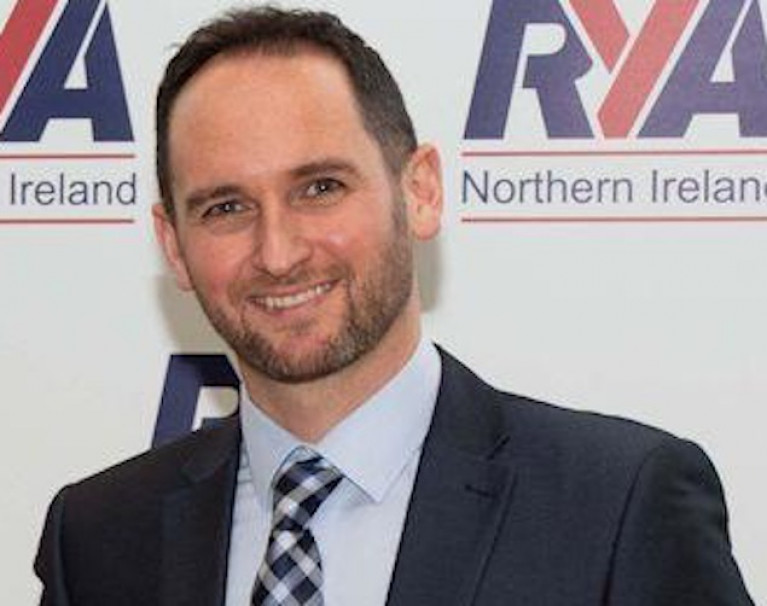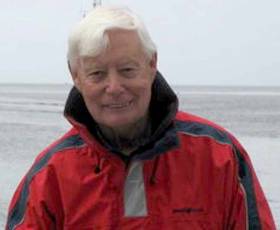Displaying items by tag: Royal Yachting Association Northern Ireland
RYANI's Richard Honeyford Joins Northern Ireland Sports Forum
RYANI Chief Operating Officer Richard Honeyford has joined the Northern Ireland Sports Forum (NISF). Gordon Reid has stepped down from the NISF and re-joined RYANI as Development Officer, covering Mary Martin's maternity leave.
The Sports Forum is the recognised umbrella organisation for the voluntary sector of sport in Northern Ireland and its vision is to lead the development of a cohesive and informed Sport and Recreation sector in Northern Ireland.
Richard is excited to be involved. "The Sports Forum is a key stakeholder for the voluntary sector of sport in Northern Ireland and works to represent those sports as well as driving initiatives forward such as the Code of Good Governance and Female Sports Forum. I am looking forward to being a part of the organisation and supporting them going forward".
Richard has been the Chief Operating Officer for RYA Northern Ireland since 2017. He has sailed since childhood and won several Irish National titles in Toppers and Lasers. He also represented Ireland in the Laser class at the ISAF Youth Worlds in 1997 and 1998. Academically, he qualified as a Modern Languages Teacher and professionally has worked as an instructor in several training centres and became a racing coach at national and international level.
Richard has been with the RYA Northern Ireland since 2005, where he began as a coach and then became Performance Manager for over ten years. Developing the performance pathway, he saw Northern Irish athletes win 15 World and European medals from junior to senior level and also coached Laser sailor, James Espey at the London 2012 Olympics. He now enjoys windsurfing, getting on the water with his two daughters and competes on the Irish Windsurf Association's slalom series, when time allows.
The Late Doug Smyth OBE
Tributes have been paid to Northern Ireland sailing stalwart Doug Smyth OBE who passed away this summer writes Betty Armstrong.
Doug, a member of Carrickfergus Sailing Club and former Chair of The Royal Yachting Association Northern Ireland (RYANI) died on 21 August 2019 after a long illness.
Doug was RYANI Chair from 2002- 2004. He took the organisation forward as a Limited Company and developed it into the governing body it is today.
For his support to the sport of sailing he received a lifetime achievement award and was proud and honoured to receive a gold medal.
Doug’s contribution to our sport was notable. He put huge effort into Sailability and Belfast Lough Sailability, and he wrote the constitution for the Carrickfergus Berth Holders Association, which was adopted as the standard across the UK. He and his wife, Lillian regularly cruised in the Western Isles.
Doug had a varied career, including Chief Executive of Dr Barnardo’s and Chief Executive of Northern Health and Social Services Board. On his retirement, Doug was the Chair of the Northern Ireland Ambulance Service. He was also an accomplished musician.
A keen sailor, Doug was a member of several clubs and organisations and was well respected in the sailing community. He continued to keep an interest in RYA Northern Ireland, offering advice and support to help develop sailing and boating opportunities in the region.
Condolences go to Lillian, his wife of 59 years and their family.
Newtownards To Host RYANI Instructor and Coach Conference
#RYANI - Newtownards Sailing Club will be hosting this year’s Royal Yachting Association Northern Ireland (RYANI) Instructor and Coach Conference.
The conference on Saturday 16 February is aimed at RTC principals, RYA instructors and Volvo Champion Club coaches and co-ordinators.
Topics to be covered include Racing Rules of Sailing rule changes for 2013-2018 and a national update on activity by the RYA throughout the year.
The event also has an allowance for on-the-water activities, with a chance to pick up some new ideas for training in sailing and powerboating in the afternoon.
Meanwhile, Sunday 17 February will see various courses taking place throughout the day, including in first aid and SRC/VHF certification, as well as a club mark laying course for RYA members.
This half-theory, half-practical course will give an introduction to mark-laying which includes basics like how an anchor works plus techniques to stream marks, lay level gate marks and spreader marks, and a short section on signalling.
Details on booking your place at the Saturday conference and on the Sunday courses are available at the RYANI website HERE.
Royal Yachting Association Northern Ireland
The RYA is the national body in the United Kingdom for all forms of boating, including dinghy and yacht racing, motor and sail cruising, RIBs and sports boats, powerboat racing, windsurfing, inland cruising and narrowboats, and personal watercraft. The RYANI is their Northern Irish branch.
For the latest RYA Northern Ireland news from Afloat click here
There is a space for Irish boating clubs and racing classes to use as their own bulletin board and forum for announcements and discussion. If you want to see a dedicated forum slot for your club or class, click here
































































